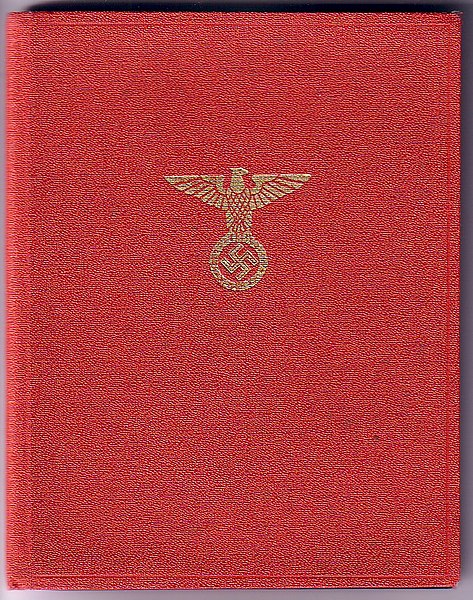The Nazi term Gleichschaltung or "coordination" was the process of Nazification by which Adolf Hitler — leader of the Nazi Party in Germany — successively established a system of totalitarian control and coordination over all aspects of German society "from the economy and trade associations to the media, culture and education". Although the Weimar Constitution remained nominally in effect until Germany's surrender following World War II, near total Nazification had been secured by the 1935 resolutions approved during the Nuremberg Rally, when the symbols of the Nazi Party and the state were fused and German Jews were deprived of their citizenship. The tenets of Gleichschaltung also applied to territories occupied by the Nazis.
During the debate on the Enabling Act, Social Democrat chairman Otto Wels spoke the last free words in the Reichstag: "Freedom and life can be taken from us, but not our honor." The subsequent passage of the Act did away with parliamentary democracy.
Joseph Goebbels in 1942
Promulgation of the Law on the Trustees of Labour in the Reichsgesetzblatt of 20 May 1933
The Nazi Party, officially the National Socialist German Workers' Party, was a far-right political party in Germany active between 1920 and 1945 that created and supported the ideology of Nazism. Its precursor, the German Workers' Party, existed from 1919 to 1920. The Nazi Party emerged from the extremist German nationalist, racist and populist Freikorps paramilitary culture, which fought against communist uprisings in post–World War I Germany. The party was created to draw workers away from communism and into völkisch nationalism. Initially, Nazi political strategy focused on anti–big business, anti-bourgeois, and anti-capitalist rhetoric; it was later downplayed to gain the support of business leaders. By the 1930s, the party's main focus shifted to antisemitic and anti-Marxist themes. The party had little popular support until the Great Depression, when worsening living standards and widespread unemployment drove Germans into political extremism.
NSDAP membership book
Mein Kampf in its first edition cover
Nazis during the Beer Hall Putsch in Munich
Hitler with Nazi Party members in 1930







